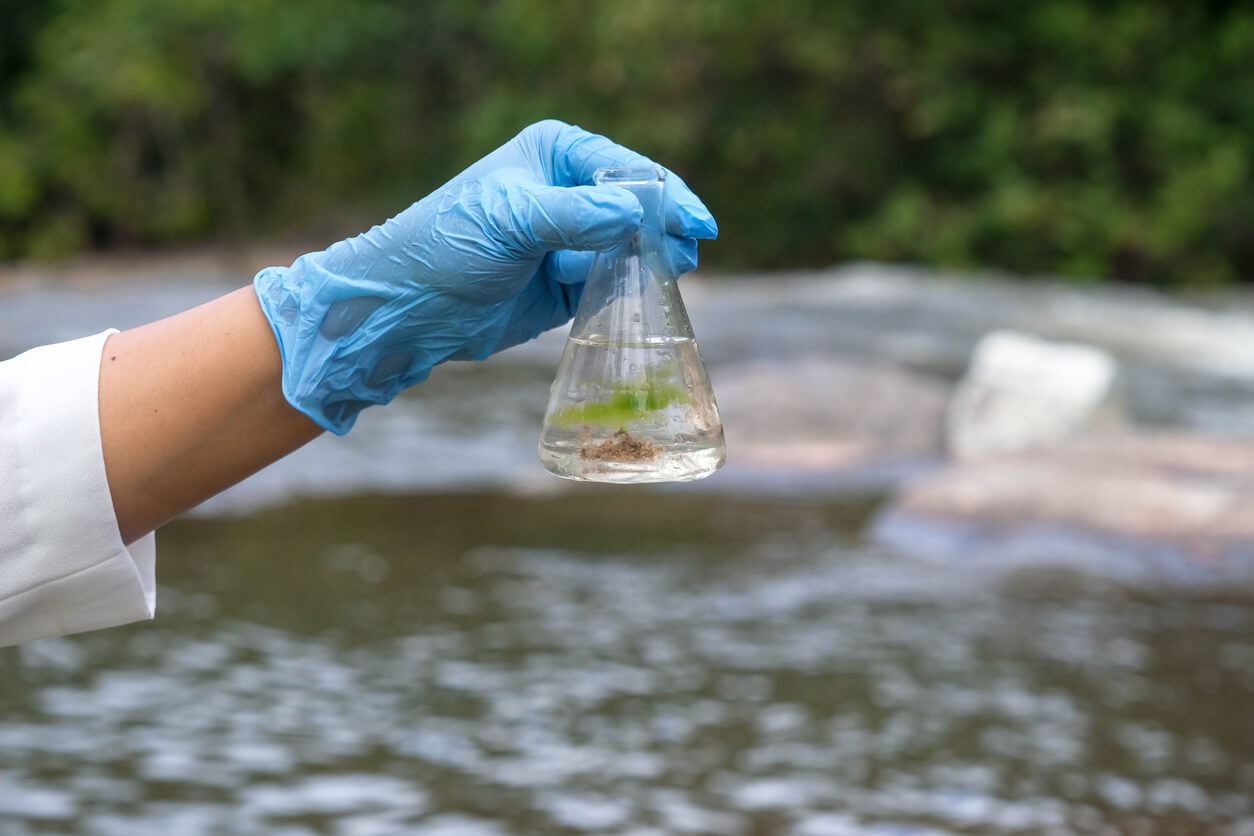New Jersey Secures $875 Million PFAS Settlement from DuPont, Chemours and Corteva

Companies tied to potentially harmful forever chemicals are now set to pay out yet another mega settlement.
DuPont, Chemours and Corteva announced on Monday that they had agreed to pay a total of $875 million to the state of New Jersey over environmental claims. This includes claims that per- and polyfluoroalkyl substances, more commonly known as PFAS, damaged the environment within the state.
These chemicals, which have been used in everything from nonstick cookware to firefighting foam, are nearly indestructible and have also been connected to serious health issues like cancer. According to the Centers for Disease Control and Prevention, nearly all people in the U.S. now have some level of PFAS in their blood.
“PFAS are particularly insidious,” New Jersey Attorney General Matt Platkin said in a statement. “These dangerous chemicals build up and accumulate everywhere, and New Jersey has some of the highest levels of PFAS in the country.”
If approved by a judge, that $875 million is set to be paid out over 25 years, starting no earlier than 2026.
Settlements involving PFAS contamination have been on the rise in recent years. Just last month, DuPont agreed to a $27 million PFAS settlement with residents of Hoosick Falls, New York over claims that their drinking water had been contaminated by the chemicals.
Multinational conglomerate 3M also agreed to its own $450 million mega settlement with New Jersey over similar allegations just a few months ago. In 2024, 3M finalized a settlement to pay out more than $10 billion to public water systems across the nation over PFAS contamination claims.
Lawsuits Claim PFAS Exposure Tied to Cancer, Other Health Risks
In addition to states and public water systems, thousands of individuals have also filed PFAS lawsuits claiming that they were impacted by chemical contamination.
Lawsuits claim that exposure to these chemicals led people to develop conditions such as kidney cancer, testicular cancer and ulcerative colitis.
Contamination has often been tied to aqueous film-forming foam (AFFF), a type of firefighting foam that contained PFAS. AFFF is used for issues like gasoline fires and is common at airports and military bases, where it may spread into soil and groundwater.
More than 12,000 cases involving these claims are currently grouped together in federal court, with a personal injury bellwether trial fast approaching.
Bellwether trials are used when hundreds or thousands of similar lawsuits are filed. These trials serve as test cases, helping both sides get a sense of how strong their arguments are in the litigation. When defendants lose the bellwether trials, they could be motivated to settle the other pending cases instead of risking taking more to trial.
The first AFFF personal injury bellwether is scheduled for October and involves claims of kidney cancer.
But a settlement for people who say they were impacted could come even sooner. In June, the judge overseeing those lawsuits encouraged both sides to agree on a settlement before that trial could begin.
So far, a finalized settlement has not yet been announced.




